Boston Ivy On Walls: Will Boston Ivy Vines Damage Walls
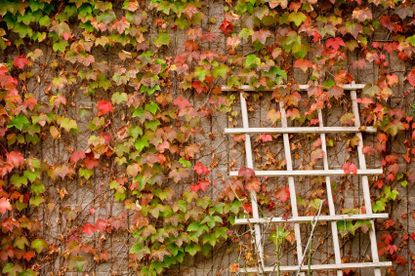

Boston ivy growing up brick surfaces lends a lush, peaceful feeling to the environment. Ivy is renowned for adorning quaint cottages and centuries-old brick buildings on university campuses—thus the moniker “Ivy League.” This distinctive vine is a beautiful evergreen plant that thrives in difficult areas most plants won't tolerate. The plant is also useful for covering up unsightly defects in brick or masonry walls. Although Boston ivy has many benefits, it has nearly as many negative qualities. Consider carefully before planting Boston ivy in your garden.
Will Boston Ivy Vines Damage Walls?
English ivy, Boston ivy's extremely destructive, distant cousin, can destroy walls as it digs its aerial roots into the surface. English ivy is also extremely aggressive and is considered an invasive weed in many states for its ability to choke out native plants and trees. In comparison, Boston ivy is a relatively gentle grower that clings by means of small suckers at the end of the tendrils. The plant is known as a self-adhesive plant because it requires no trellis or other supportive structure to keep it upright. Although Boston ivy is relatively well-behaved, growing Boston ivy on walls requires considerable maintenance, and ivy plants near walls will soon find the way to the upright surface. Planting the vine on or near a painted wall may not be a good idea because it is likely to damage the paint. Otherwise, the vine does little damage. Never plant Boston ivy plants near walls unless you're prepared for the plant to be permanent, and you're willing to do regular maintenance. Frequent trimming is required to keep the ivy from covering windows, eaves, and gutters. Once the plant is established, it can be extremely difficult to remove and eliminating the vines permanently may require many hours of ripping, digging, scraping, and scrubbing. If you're thinking about planting Boston ivy, purchase the plant from a reputable, knowledgeable nursery or greenhouse. Be sure you're buying Parthenocissus tricuspidata (Boston ivy) and avoid Hedera helix (English ivy) like the plague.
Gardening tips, videos, info and more delivered right to your inbox!
Sign up for the Gardening Know How newsletter today and receive a free download of our most popular eBook "How to Grow Delicious Tomatoes."

A Credentialed Garden Writer, Mary H. Dyer was with Gardening Know How in the very beginning, publishing articles as early as 2007.
-
 Urban Composting Guide: How To Compost In The Middle Of The City
Urban Composting Guide: How To Compost In The Middle Of The CityUrban composting does not have to be daunting. You can compost in the city, and maybe even try some urban worm composting!
By Mary Ellen Ellis
-
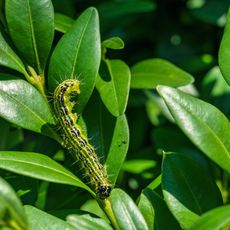 Shrub Diseases And Pests To Watch Out For
Shrub Diseases And Pests To Watch Out ForShrub diseases and pests can be challenging. Learn how to recognize and eradicate them before they can present a danger to your plants.
By Susan Albert
-
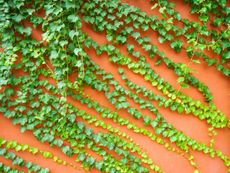 Boston Ivy Leaf Drop: Reasons For Leaves Falling From Boston Ivy
Boston Ivy Leaf Drop: Reasons For Leaves Falling From Boston IvyAlthough many ivy plants are evergreen, Boston ivy is deciduous. It is perfectly normal to see your Boston ivy losing leaves in autumn. However, Boston ivy leaf drop can also be a sign of disease. Click here to find out more about Boston ivy leaf drop.
By Teo Spengler
-
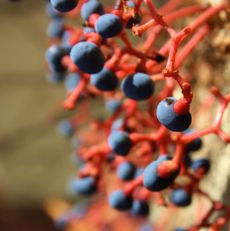 Boston Ivy Seed Propagation: How To Grow Boston Ivy From Seed
Boston Ivy Seed Propagation: How To Grow Boston Ivy From SeedBoston ivy is a woody, fast-growing vine. Mature vines display beautiful, early summer blooms, followed by Boston ivy berries in autumn. Planting seeds you harvest from the berries is a fun way to start a new plant. Read here to learn more.
By Mary H. Dyer
-
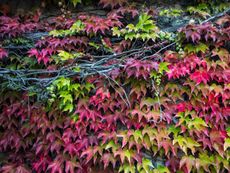 Boston Ivy Cuttings: How To Propagate Boston Ivy
Boston Ivy Cuttings: How To Propagate Boston IvyYou can fill your garden with the Boston ivy by taking cuttings from the vine and rooting them into new plants. So how do you take these cuttings? This article will help with that. Click here to learn more.
By Anne Baley
-
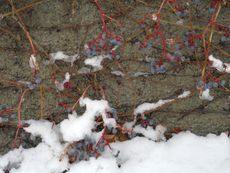 Boston Ivy Winter Care: Information On Boston Ivy Vines In Winter
Boston Ivy Winter Care: Information On Boston Ivy Vines In WinterBoston ivy plants are commonly grown vines in the landscape. But what about keeping Boston ivy over winter? Learn more about that in this article. Click here to get additional information.
By Jackie Carroll
-
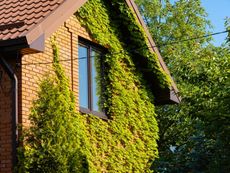 Controlling Boston Ivy - Learn About Removing Or Pruning Boston Ivy Vine
Controlling Boston Ivy - Learn About Removing Or Pruning Boston Ivy VineLots of gardeners are attracted to the stately beauty of Boston ivy, but controlling this hardy plant can be a challenge both indoors and in the garden. Regular pruning or removal can be found in this article.
By Beverly Forehand
-
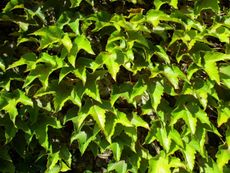 Boston Ivy Care: Tips For Growing And Planting Boston Ivy
Boston Ivy Care: Tips For Growing And Planting Boston IvyBoston ivy plants are attractive, climbing vines that cover outer walls of many older buildings, particularly in Boston. Get information and tips on caring for this plant in the article that follows.
By Becca Badgett